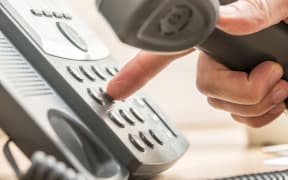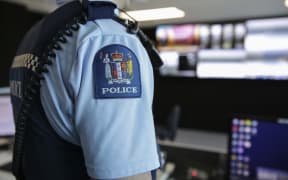As Covid-19 spreads around the world, it can be daunting keeping up with the information. For RNZ, our responsibility is to give you verified, up to the minute, trustworthy information to help you make decisions about your lives and your health. We'll also be asking questions of officials and decision makers about how they're responding to the virus. Our aim is to keep you informed.
The country's three major IT groups have been left out of the loop by the government in the race to speed up critical contact tracing of virus carriers.

Asian countries have harnessed smartphones and GPS technology to identify all the people that every sick person met and put them in quarantine. Photo: 123RF
This is despite the consensus that rapid, mass tracing is the single most important thing New Zealand can do to get out of lockdown.
Oxford University's Big Data Institute has said the pandemic can be stopped - but only if tracing is fast and extensive.
"We conclude that viral spread is too fast to be contained by manual contact tracing, but could be controlled if this process was faster, more efficient and happened at scale," its researchers said in Science Magazine.
The key is to identify all the people that every sick person met, and put them in quarantine. Asian countries have harnessed smartphones and GPS technology to do just that.
"Try recalling who you met two weekends ago," begins the Singapore government's plug for its Tracetogether anti-Covid-19 app.
"Can you name everyone you met and talked to that day? ... And even if you did, there's a good chance you might not have all their contacts."
'No evidence' NZ tech sector involved in tracing technology
So who is involved in the race here to harness technology?
The New Zealand Technology Industry Association said it was not involved.
The peak sector body, New Zealand Health IT, said it did not know. It represents the majority of digital health entities and consultants and told RNZ it had not been consulted by the government about contact tracing.
The new Digital Council did not know either - and on its own initiative it raised Covid-19 for the first time with ministers last Thursday.
Contact tracing technology has not come up at all at the Epidemic Response Committee either, according to committee member and ACT MP David Seymour.
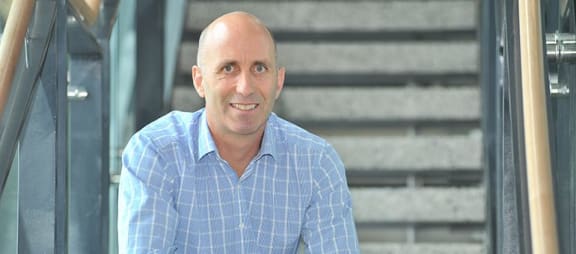
Graeme Muller. Photo: Tech NZ
Graeme Muller, who heads the Technology Industry Association, was disturbed how little the sector knows about what the Health Ministry is doing.
"There's currently no evidence that they're engaging with any industry groups or specialist groups in the tech sector," he told RNZ.
About 20 countries have introduced some form of digital tracing already but 74 days after the Health Ministry set up a team to monitor Covid-19, New Zealand does not have this capability yet.
If the ministry was moving on this "they're doing it very, very quietly and I would have expected them to have been more consultative with talking to a few key people, and I'm not hearing that that's happened at all," tech analyst Hayden McCall said. He has been asking around about this for days.
Asia had already shown what worked, McCall said, pointing to TraceTogether where enabled phones digitally 'shake hands', leaving an accurate trail for contact tracers to follow, with the phone owner's permission. It is open source for anyone to use.
"So we're looking at that and comparing that with staff in Wellington ... contact tracing on the phone, and picking up bits of paper, and what people can remember about where they went and when they went."
- If you have symptoms of the coronavirus, call the NZ Covid-19 Healthline on 0800 358 5453 (+64 9 358 5453 for international SIMs) or call your GP - don't show up at a medical centre
Tracing numbers increase to 700 per day
New Zealand has speeded up tracing.
Using $40 million put into public health last month, the Health Ministry on 19 March set up a new national centre. It actually began contact tracing five days later, and in the 13 days since has averaged 400 contacts of sick people traced per day. Lately that has risen to 700 a day.
The centre is using up to 190 staff across two shifts, with half of those doing the grunt work of making myriad phone calls and the other half "triaging", all backed by regional public health units.
Singapore is using manual tracing like this and in addition 620,000 Singaporeans have downloaded the tracing app.
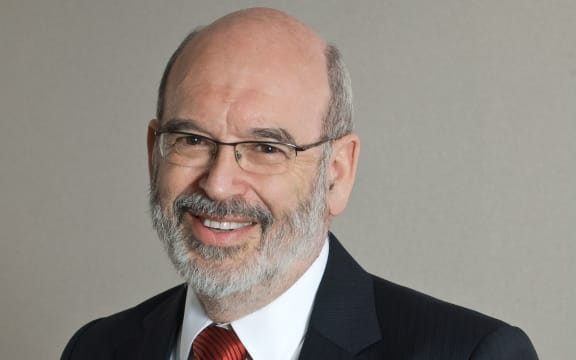
Sir Peter Gluckman. Photo: SUPPLIED
Sir Peter Gluckman, the government's former chief science adviser, cannot understand the hold-up in launching such an app.
"The evidence all around the world is that if you want to do it rapidly, you need to use technology to do it," he said.
"Now there's a range of technologies, some of which are well in use now, that would allow it.
"The Privacy Commissioner has said that we can use these technologies in New Zealand in this situation. Many of them only required voluntary use.
"We should get on and do it."
Graeme Muller said the danger was in making a misstep.
"The assumption is they're dealing directly with current providers of their current technologies, and trying to map out solutions based on that.
"They may accidentally be limiting themselves or moving slower than they could by just taking that approach at this stage."
The ministry might be doing this "purely for speed, because they'll have the software in place, and have the relationships in place. So they can probably make some decisions quickly. But it may be limiting their options," Muller said.
More demand for tracing
The demand for tracing is growing as the number of people tested rises. Tests have increased from a few hundred to 3500 a day.
Five thousand people in total have been traced so far.
That number would have been more, except initially the national centre was locked into using only ministry's own phones.
Only now that it has shifted to cloud-based technology can its staff work from home.
ACT Party leader David Seymour said he would ask about contact tracing technology at the epidemic response committee when it meets tomorrow.
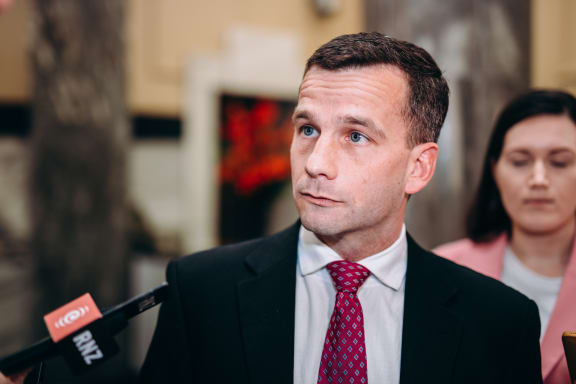
David Seymour Photo: RNZ /Dom Thomas
"What the prime minister should be doing, is standing up and saying, 'the most powerful thing New Zealand citizens can do today is voluntarily download the Tracetogether app, which will allow us to do mass contact tracing very rapidly if somebody's infected, while allowing people to keep ownership of their own data, and maintain their privacy and independence," the MP said.
"It's my intention to ask why we haven't already adapted the free Singaporean app to New Zealand conditions and made it a national campaign for everybody to download that app."
Muller said the need for speed might rule out wide-ranging consultation, but the government should at the very least be hearing from the Digital Council that it set up just this year to be the lead independent technology advisory group to ministers.
That was not happening, said Mitchell Pham who chairs the Digital Council.
"We don't know at the moment where government is currently getting advice from already, and that's what I'm trying to find out," he said.
The seven-member council had not given the government any advice so far about Covid-19.
The council had only just been finding its feet when Covid-19 ramped up, he added.
On the medical front with Covid-19, the government has a very public technical advisory group of named members, but no equivalent technology advisory group.
As to what existing or tweakable technology New Zealand tech firms might already have to use for contact tracing, Pham said he "hadn't actually done any scan on that".
"That's probably something that we could look into if that's an area that government really needs our advice on."
Health Ministry 'swamped with offers of help' from tech firms
In a statement, the Health Ministry said it was working with several technology companies, including regular partners, to "give New Zealanders the ability to voluntarily share their information for contact tracing". It gave no names of companies.
Sources said the ministry was so swamped with offers of help from tech companies that it has struggled to sort through them.
RNZ has been contacted by a handful of such companies.
One of those who offered a new app - for free - is Alan Chew who runs 30-strong Houston Technology in Hamilton; his app, based on people in, say, a supermarket queue scanning a QR code into their phone, has been ready to go for days.
"My difficulty has been reaching the powers that be," he said.
"I have tried numerous channels, but have got no luck simply because everybody has been too overwhelmed."
RNZ asked the ministry about it not engaging with Alan Chew; the next day it contacted him.
Around this time the ministry had said it was leaving no stone unturned in its fight against the virus.
The government's chief science advisor Juliet Gerrard referred RNZ's query about the contact tracing technology work to the ministry.
The ministry would not be interviewed by RNZ.
The ministry has "re-purposed existing technology platforms" which have been proven secure and robust, to do tracing, it said in a statement.
RNZ asked if this means it had simply added health and identity information from its national screening database, to help its tracers to find people by using the phone.
The ministry did not say.
It said senior clinicians tested the repurposed system before it began using it last week.
Contact tracing staff numbers were likely to remain at 190 over the next three weeks, it said, but then said it could increase that.
Lack of debate over security and privacy 'alarming'
It is alarming to law scholar Tom Barraclough that, wherever the ministry is at with contact tracing technology, there has been little of the debate about privacy and security that is occurring overseas.
"Leadership and transparency around how any digital content tracing is going to be essential for assessing its privacy impacts and for bringing everybody in New Zealand along," he said.
The Health Ministry said it took privacy and security seriously.
But the difficulty getting information persisted, Sir Peter Gluckman said.
"If we're going to sustain public trust, we need to have as much transparency as possible for the government to give."
The Health Ministry said it was with the All Of Government group to ensure it made the right choices about contact tracing, but gave no timeline.
It was updating the Health Minister regularly, it said.
Government minister Kris Faafoi, who the Digital Council reports to, gave RNZ no details about work on contact tracing technology.
Sir Peter, asked if the urgent task of improving contact tracing was happening quickly enough, said: "I wouldn't know."
Read more about the Covid-19 coronavirus:
- See all RNZ Covid-19 news
- A timeline: How the coronavirus started, spread and stalled life in New Zealand
- Covid-19 symptoms: What they are and how they make you feel
- Touching your Face: Why do we do it and how to stop
- Scientific hand-washing advice to avoid infection
- Coronavirus: A glossary of terms
- The Coronavirus Podcast




